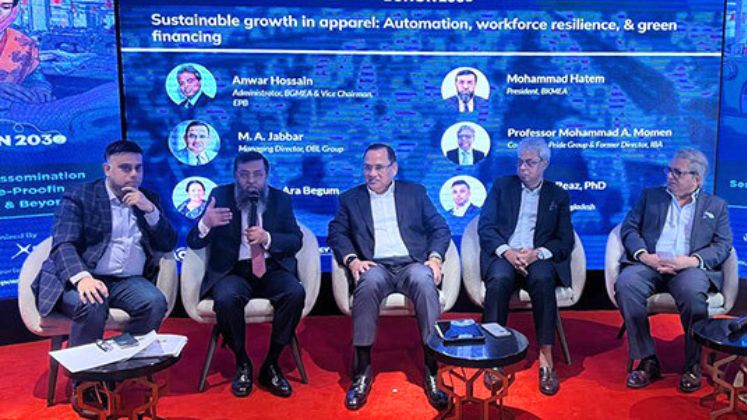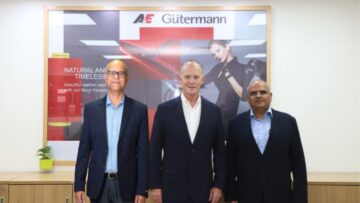
At a recent event titled National Dissemination Session: Future-Proofing RMG for 2030 & Beyond, leaders in Bangladesh’s Ready-Made Garment (RMG) sector underscored the critical need for innovation and value addition to propel the industry to the next level.
M A Jabbar, Managing Director of DBL Group, emphasised that the company has shifted away from competitive pricing strategies through innovative practices in products, research and development, and operational processes. “Over the past five years, our competitor countries have implemented all-encompassing plans and are already seeing results. Vietnam’s long-term strategies, for example, have greatly improved its product variety and value addition,” he stated.
The event highlighted Bangladesh’s impending graduation from Least Developed Country (LDC) status by 2026, coupled with new opportunities and challenges arising from the ratification of 27 EU conventions. While the nation has achieved notable progress in the textile and apparel sector, speakers identified ongoing concerns regarding labor rights and compliance with international standards.
Jabbar pointed out that Bangladesh has stalled in its apparel export targets due to a lack of comprehensive studies and necessary policy amendments. “We need strong institutional support and leadership to break through this plateau. Instead of making sporadic attempts, a cohesive, industry-wide strategy is essential,” he urged.
He noted that only a handful of companies, including DBL, are negotiating better prices through innovative processes and R&D.
Chief Guest Anwar Hossain, Vice Chairman of the Export Promotion Bureau (EPB) and newly appointed Administrator of the Bangladesh Garment Manufacturers and Exporters Association (BGMEA), acknowledged the energy crisis as a significant challenge for the industry.
Hossain stressed the importance of a long-term collective approach to improve the ease of doing business and foster stronger industry-academia partnerships. “Enhancing competitiveness requires broadening our product lines beyond cotton-based textiles and upskilling our workforce. Additionally, operational efficiency will increase with the simplification of regulatory procedures,” he added.
He praised BGMEA’s initiative to promote a circular economy, highlighting the need for effective business models to minimize waste and optimize resource utilisation.
Md. Hatem, President of the Bangladesh Knitwear Manufacturers and Exporters Association (BKMEA), urged the new government to postpone the LDC graduation planned for 2026. Hatem also noted the potential opportunities in the apparel sector as China shifts away from the business.
Academician Prof. Mohammad A Momen discussed the challenges faced by Bangladeshi RMG manufacturers, pointing out that while R&D efforts are present, they do not necessarily translate into better pricing from brands. To counter these challenges, Prof. Momen emphasised the importance of branding.






